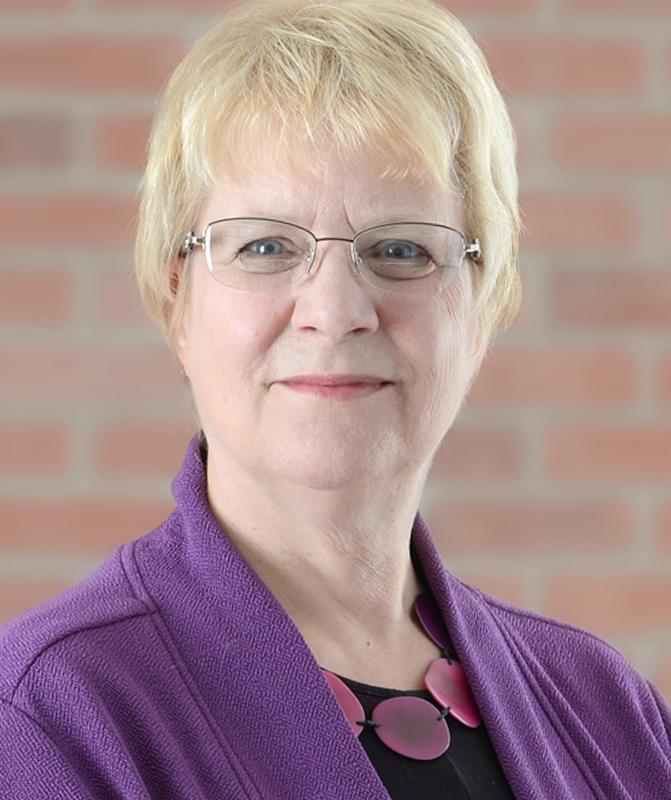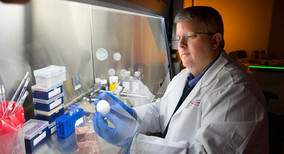|
|
|
Notes from Innovation Policyworks

A few weeks ago at the annual SSTI conference, held this year in Providence, RI, I attended several thought-provoking sessions. The first was about inclusion and equity in innovation. At first, this session focused exclusively on programs to increase the number of women entrepreneurs getting capital, but it eventually broadened its scope to include ideas for how to more broadly include people of color, immigrants, and others not in the mainstream. That was a great lead-in to a session on social entrepreneurship (SE). SE was defined as any business that "does good while doing well," which turns out to cover a lot of ground. This isn't just about incubating a bunch of do-good non-profits. It has more to do with companies like Patagonia or Ben & Jerry's whose corporate philosophy encompasses social values as well as profitability. Lastly, I attended a session about clean technology, those companies whose goal is to impact climate change which I would argue is also SE. I came away from these sessions knowing that the goals of innovation and entrepreneurship programs have to be broad enough to embrace these disparate entrepreneurs.
Back at home, the most valuable woman-owned venture-backed company in Maine was just announced. It's Susan McKay's Cerahelix, a water filtration company that incorporates clean technologies to attack the global shortage of clean drinking water. (See Susan's excellent TedX talk
here for more info.)
That's full circle: a woman-owned company with a social goal using a clean technology. What if Maine Technology Institute hadn't supported Cerahelix and its predecessor? What if Susan hadn't been accepted in Top Gun, Maine Center for Entrepreneur's accelerator? What if she hadn't gone on to participate in the Clean Tech Open or Mass Challenge? What would we have lost? It's not always just how many employees a company grows to, or how much capital they attract. It's a broader definition of impactful that we need to keep our eyes on.
Cathy
|
Numerous reports over the past year have raised the specter of too many workers and not enough work, largely due to new technologies like AI and robotics. Some have ever suggested minimum income guarantees to compensate for these challenges.
A remarkable group of researchers have gathered at MTI to work on the Future of Work. Their Fall 2019 report focuses on the interaction between work and technology. Their central premise, that work is a "central human activity, critical to self-realization and social cohesion" shapes their inquiry into how to make "investments in education and skills training ...to deliver [quality] jobs." They conclude, "The goal is ...to nudge innovation in directions that will benefit the nation....boosting productivity and providing a foundation for shared prosperity." Well worth reading the whole report HERE.
A second report on the same topic comes from McKinsey. Their premise is similar, but focuses on how automation technologies are reshaping the American workplace. They point out that low-growth, rural areas will be hardest hit by this phenomenon, and estimate that 60% of job growth by 2030 could be concentrated in 25 cities and their peripheries. They conclude by saying that "without bold, well-targeted interventions, automation could further concentrate growth and opportunity." Read the McKinsey report HERE.
|

A Bold Experiment Pays Off
Twenty-five years ago, Georgia embarked on a bold experiment to radically change its research universities by purposely building a cadre of exceptional scholars in the biosciences.
Implemented by the Georgia Research Alliance (GRA), the initiative has recruited 72 Eminent Scholars since 1996. Today, those scholars make up 5% of the university research workforce in Georgia, but receive 25% of all research funding. This past week, the National Institutes of Health awarded two Georgia universities more than $200 million in funding to accelerate pursuit of a universal influenza vaccines. At the center of this new project are two GRA Eminent Scholars, Ted Ross (shown above) at the University of Georgia and Rai Ahmed at Emory University. Georgia Gov. Brian Kemp said, "It ...shows how making smart, targeted investments in our universities through GRA can generate tremendous returns down the road, not only financially, but also in elevating the profile of our state." Read more
HERE.
|
Climate Action's Triple Dividend
The Global Commission on Adaptation recently concluded that investing $1.8 trillion in climate solutions by 2030 would yield $7.1 trillion in total net benefits.
The report's authors call this a "triple dividend:" the investment (1) reduces future losses; (2) reduces risks; and (3) generates social and environmental benefits. The report suggest that investments should be made in five systems: weather warning, infrastructure, dry-land farming, mangrove protection and water management. Read the report
HERE.
|
Americans Think Science Has Positive Impact
A new Pew Research Center study shows that 73% of US adults believe that science has a mostly positive effect on society. Those with high science knowledge are even more positive, with 89% of those adults agreeing with the premise. Medical advances are citied most often, followed by technology and computerization. Eighty-two percent agree that scientific developments will continue to improve lives. Read the data
HERE.
|
The annual State of Women-Owned Businesses Report has estimated that America's total number of businesses headed by women grew 21% between 2014 and 2019 while overall business growth clocked in at just 9% during the same period.
Revenues generated by women-led companies during the same period climbed 21% to nearly $2 trillion, while the jobs they created rose by 8% to 9.4 million. Both totals dwarf the national average for companies headed by executives of either gender.
You may be surprised by the best states for women-owned businesses:
Maine topped every other state in the country in terms of employment vitality, with Minnesota, Indiana, Delaware and Virginia rounding out the top five. Nebraska, Illinois, Vermont, Arkansas and Mississippi sat at the bottom of the report's employment index. (This metric takes into account employment growth rates and average number of employees)
Check out all the data
HERE.
|
More women founders yields more success
The Kauffman Fellows Research Center just released a study of nearly 90,000 companies going back to 2001. They found that "From the first round of funding to the last, companies with at least one woman founder were able to raise millions more than companies without any women founders, with the difference growing larger as companies continued to grow and raise further rounds of capital."
"
Diversity is vital to startup growth, as it provides a greater pool to generate ideas from, and allows for a greater understanding of potential consumer models," explains Lisa Feria, CEO of the Midwest venture capital firm
Stray Dog Capital. "While the stereotypical startup is led by young men on the East or West Coast, that is not and should not always be the case." Read more
HERE.
|
|
|
Hear Cathy on WGAN's Inside Maine with Marty Grohman
 I had the most fun talking with Marty Grohman, serial entrepreneur, legislator, House candidate and now Executive Director of E2Tech. He's just as engaging in person as he is on the radio! Listen HERE. I had the most fun talking with Marty Grohman, serial entrepreneur, legislator, House candidate and now Executive Director of E2Tech. He's just as engaging in person as he is on the radio! Listen HERE.
|
|
|
"
You can't use up creativity. The more you use, the more you have."
|
|
Innovation of the Month: Algramo

Algramo is in 2000 stores in Santiago, Chile, dispensing everything from detergent to rice to pet food "by the gram" rather than in single use plastic packages. Algramo's vision is to alleviate the "poverty tax" that poor families face because they buy in smaller packages, rather than in bulk. Unilever is looking at partnering with this start-up because Algramo's solution also reduces the waste stream and lowers the cost associated with packaging.
Question for You:
How is your product impacting the Circular Economy?
|
|
New to Innovation, Entrepreneurship or Economic Development?
Want to learn more about what programs work and why?
Five Strategies for Economic Development that enhance innovation and entrepreneurship.
Click
HERE for a complimentary PDF that outlines the whys and wherefores!
|
|
Creating, Building and Supporting Entrepreneurial Ecosystems: What You Can Do
Now available on Amazon Kindle!
Every community, region or state is unique. It has its own demographics, geography, history, culture, business and industry mix, assets and politics. To figure out how to create, building or grow an entrepreneurial ecosystem requires an understanding of both the framework of innovation and entrepreneurship-based economic development, and a replicable, reliable process for linking that framework to your situation.
This short book is both a quick introduction to the framework, and an overview of the process, with examples from around the US to give you inspiration.
I hope you enjoy it! If you do, please write a review! Get it HERE.
|
Metrics for Entrepreneurship Programs
 Have you been wondering how to convince your stakeholders that your program is performing well? My book on evaluating entrepreneurial programs, written for the International Business Innovation Association (iNBIA), is available on its website. The basics apply to any economic development program. Check it out HERE. Have you been wondering how to convince your stakeholders that your program is performing well? My book on evaluating entrepreneurial programs, written for the International Business Innovation Association (iNBIA), is available on its website. The basics apply to any economic development program. Check it out HERE.
|
|
|